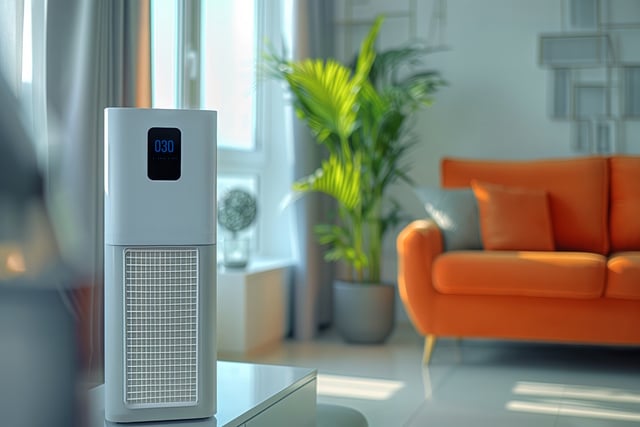
In an age where air quality directly impacts our well-being, investing in air purifiers for allergies has become essential for many households. These devices don’t just freshen the air—they help reduce allergens such as dust, pollen, and pet dander that can trigger uncomfortable symptoms. With so many options on the market, selecting the right air purifier can feel overwhelming. In this guide, we’ll break down what to look for when choosing an air purifier for your home or office, helping you create a cleaner, healthier space where you can breathe easier every day.
Understanding Air Purifiers
Air purifiers are crucial for maintaining healthy indoor air quality, especially for those with allergies, asthma, or respiratory issues. But how do they work, and what types are available?
How Air Purifiers Work
Air purifiers work by drawing in air, filtering it, and releasing clean air back into the room. The filtration process typically involves several stages:
- Pre-filter: Captures large particles like dust and pet hair.
- HEPA filter: Removes tiny particles including pollen and smoke.
- Activated carbon filter: Destroys VOCs and eliminates odors and certain chemicals from the air.
- UV light: Some purifiers incorporate UV technology to kill airborne pathogens.
Types of Air Purifiers
There are various types of air purifiers, each designed for specific needs:
- HEPA Filters: Best for allergens and particulate matter.
- Activated Carbon Filters: Ideal for smoke, VOCs, and toxic vapors.
- Ionic Purifiers: Use charged ions to attract particles but may produce ozone.
- Photocatalytic Oxidation: Combines UV light and a catalyst to eliminate pollutants.
Understanding these essentials helps in selecting the right air purifier for your space.
Key Features to Consider
When choosing an air purifier, key features should guide your decision-making process to ensure it effectively destroys allergens and pollutants.
Filtration Systems Explained
The effectiveness of air purifiers largely relies on their filtration systems. Seek models with:
- True HEPA Filters: Capture 99.97% of particles as small as 0.3 microns.
- Pre-filters: Extend the lifespan of the HEPA filter by capturing larger particles first.
- Activated Carbon Filters: Essential for tackling smoke, VOCs, and strong odors.
CADR Rating
The Clean Air Delivery Rate (CADR) indicates how quickly an air purifier can clean the air in a given space. Choose a purifier with a CADR rating that matches or exceeds your room size:
- Smoke CADR: For smoke and fine particulate matter.
- Dust CADR: For dust and allergens.
- Pollen CADR: For pollen and seasonal irritants.
Opt for a purifier with a higher CADR rating for optimal performance.
Noise Levels and Design
While effectiveness matters, consider an air purifier that won’t disrupt your daily life. Key features include:
- Decibel Levels: Review noise ratings at various fan speeds.
- Design and Portability: Ensure it fits seamlessly in your living space.
Maintenance and Upkeep
Regular maintenance keeps air purifiers running effectively.
Choosing the Right Size for Your Space
Selecting the correct size is crucial. A unit too small won’t filter air effectively. Follow these guidelines:
- Room Size: Measure the square footage.
- Manufacturer Specs: Check the recommended square footage.
Regularly change filters to maintain efficiency. A good rule is to change HEPA filters every 6 to 12 months, depending on usage and air quality.
Cost Considerations
Investing in an air purifier is a commitment to long-term health.
Investing in Long-Term Health Benefits
While some air purifiers may seem costly, view this as an investment. Healthier air can reduce allergy and asthma symptoms, resulting in fewer doctor visits. Consider:
- Energy Efficiency: Look for ENERGY STAR-rated models to save on electricity.
- Long-Term Costs: Factor in recurring filter replacement costs.
In the long run, cleaner air benefits often outweigh expenses.
Conclusion
Choosing the best air purifier doesn’t have to be overwhelming. By understanding how they work, focusing on essential features, maintaining them properly, and recognizing the investment in your health, you can make an informed choice. Cleaner air leads to a healthier living environment, and that’s what truly matters. Ensure you select the right air purifier to destroy allergens and pollutants, allowing you to breathe easier with confidence.
Disclaimer
The information contained in South Florida Reporter is for general information purposes only.
The South Florida Reporter assumes no responsibility for errors or omissions in the contents of the Service.
In no event shall the South Florida Reporter be liable for any special, direct, indirect, consequential, or incidental damages or any damages whatsoever, whether in an action of contract, negligence or other tort, arising out of or in connection with the use of the Service or the contents of the Service.
The Company reserves the right to make additions, deletions, or modifications to the contents of the Service at any time without prior notice.
The Company does not warrant that the Service is free of viruses or other harmful components












